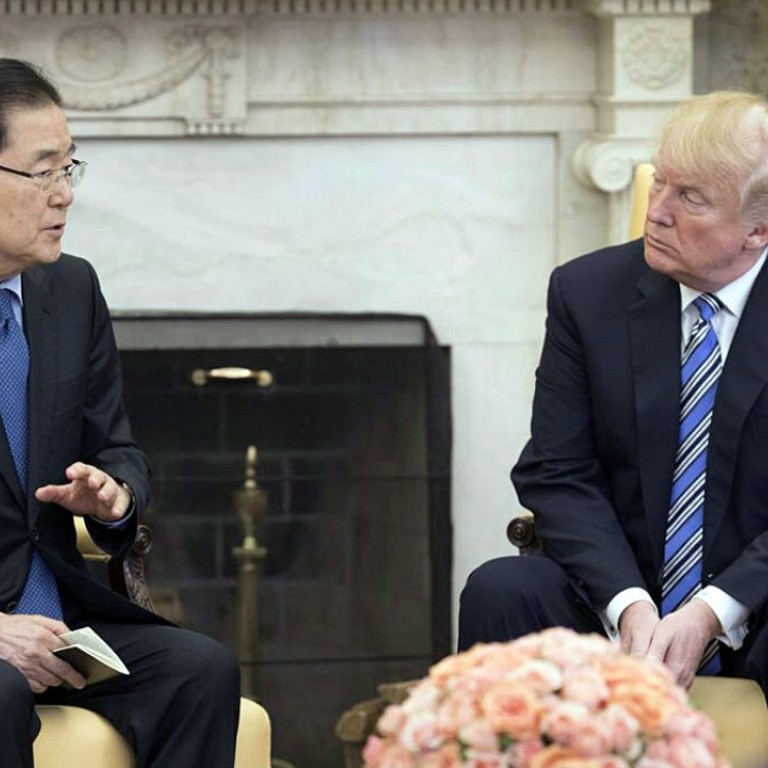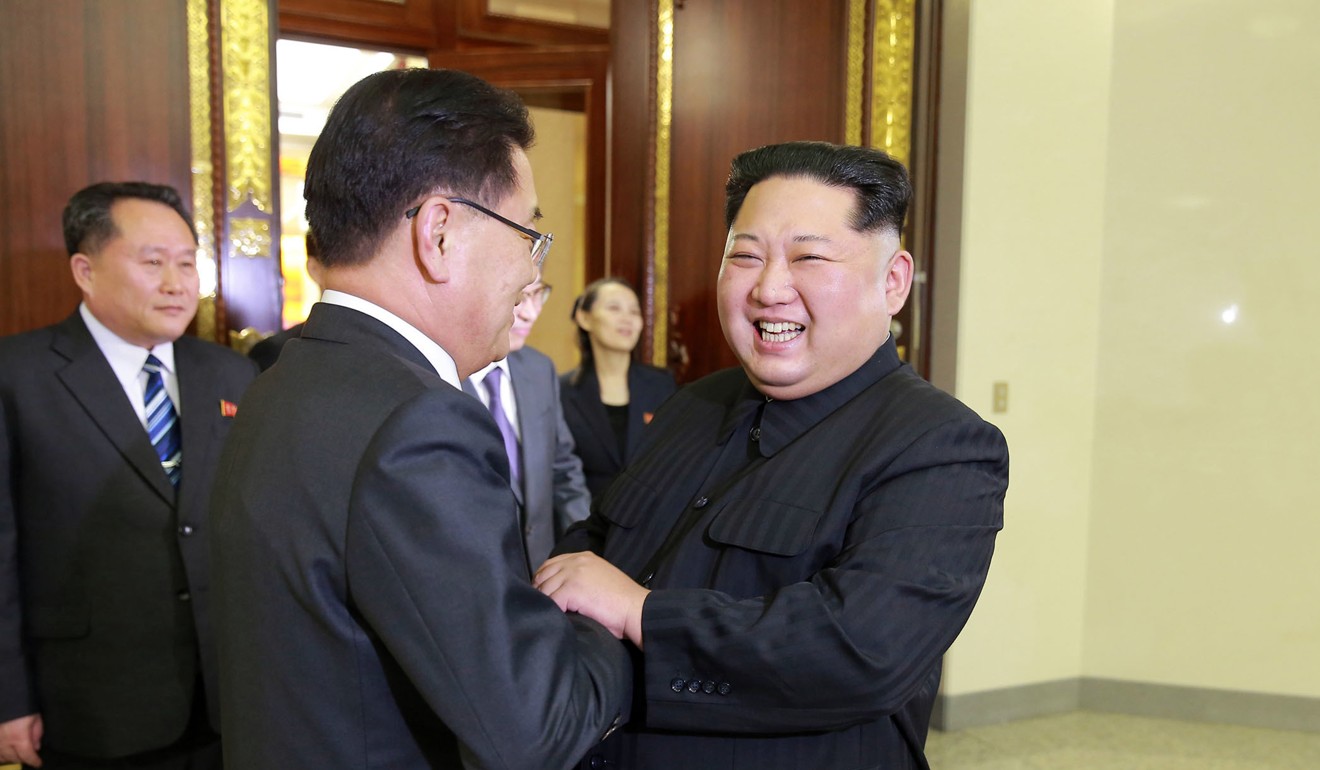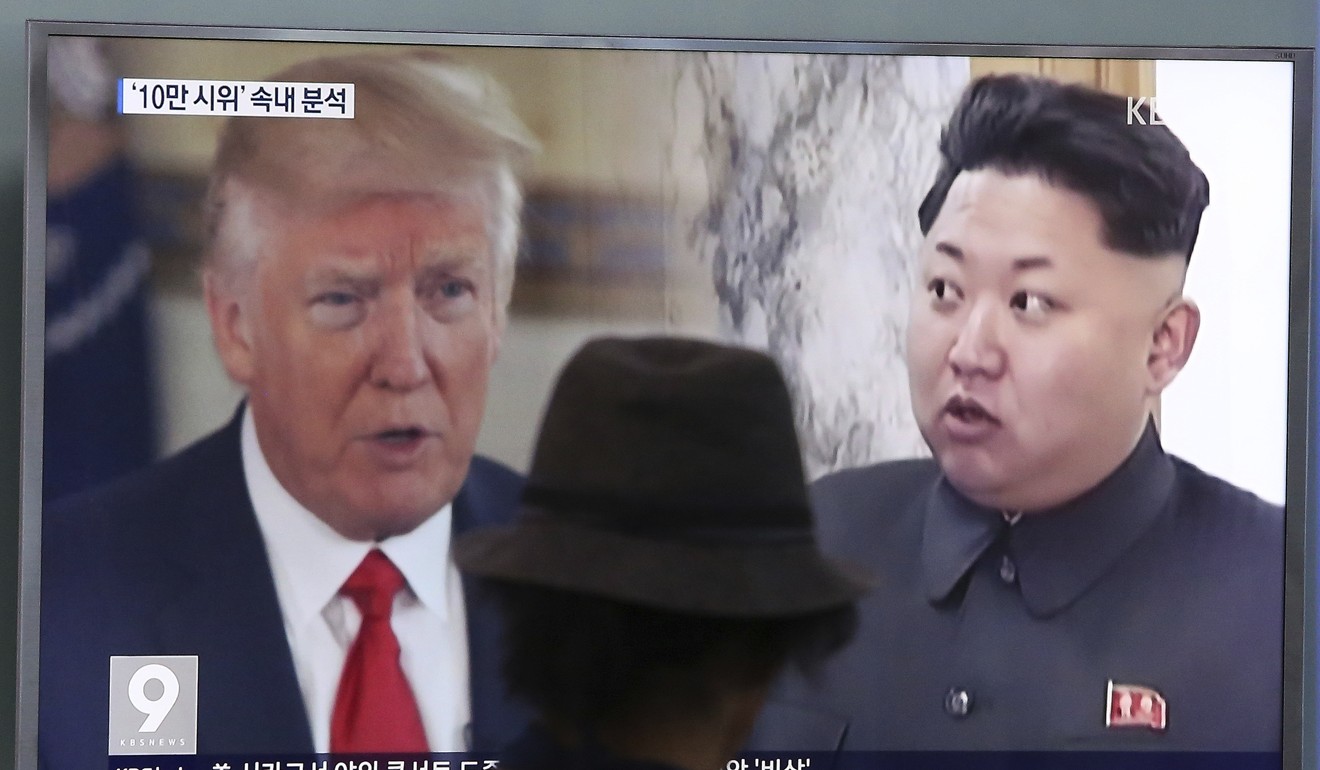
China calls for US, North Korea to show ‘political courage’ to ease nuclear tension, welcomes Trump-Kim talks
Easing in tensions applauded but Beijing, Pyongyang’s main patron, excluded from process, Chinese analysts say
China on Friday urged US President Donald Trump and North Korean leader Kim Jong-un to show “political courage” to reduce nuclear tensions as it welcomed the stunning announcement that they would hold direct talks by May.
“We welcome this positive signal by the US and North Korea in having direct dialogue,” foreign ministry spokesman Geng Shuang said in Beijing.
“We hope that all parties can demonstrate political courage and make the right political decisions to push for necessary and positive multilateral consultations.”
Chinese diplomatic observers said the landmark move, which the United States hailed as a “dramatic” shift, could ease tensions on the Korean peninsula, but they also called on Beijing to step up engagement with Washington and Pyongyang.
A South Korean diplomatic source said officials were arranging for State Councillor Yang Jiechi to travel to Seoul soon, as the situation on the Korean peninsula was changing “fast, every day”.
Chung Eui-yong, head of South Korea’s presidential National Security Office, will also visit Beijing early next week to discuss the historic breakthrough.
Trump had agreed to Kim’s offer for talks on Pyongyang’s nuclear programme in a completely unexpected move, Chung first announced in Washington on Friday.
He said Kim wanted to meet Trump as “soon as possible” and that Trump said he would “meet Kim Jong-un by May to achieve permanent denuclearisation” of the Korean peninsula.
White House press secretary Sarah Huckabee Sanders later confirmed Chung’s announcement. She said Trump would “meet with Kim Jong-un at a place and time to be determined. We look forward to the denuclearisation of North Korea. In the meantime, all sanctions and maximum pressure must remain”.
US Secretary of State Rex Tillerson said it would take “some weeks” to set up the summit.
South Korean President Moon Jae-in on Friday hailed it as a “historic milestone” for peace, saying it had come “like a miracle”. South Korean Foreign Minister Kang Kyung-wha said Seoul would make sure that if the summit went ahead, “it’s a meaningful meeting with good outcome”.
Russian Foreign Minister Sergey Lavrov said the agreement was “necessary for normalising the situation around the Korean peninsula”.

The breakthrough came after Chung headed a delegation at a historic meeting with Kim in Pyongyang late on Monday, and following a flurry of steps taken by the two Koreas during last month’s Pyeongchang Winter Olympics to alleviate tensions.
Shi Yinhong, director of Renmin University’s Centre on American Studies and an adviser to the State Council, said China was glad for the breakthrough and to see an easing in tensions in the region, but it should be worried about the geopolitical implications of warming ties between Washington and Pyongyang.
“While China has exhausted its resources [in the stand-off], it has failed to even gain concessions on trade from Trump,” Shi said.
“During the whole process, China has been completely excluded … It can only stand on the sidelines and welcome the development, but it can almost do nothing.
“Kim Jong-un’s diplomatic standing in the world has greatly increased due to its nuclear capabilities and the great desire by the South Korean president for rapprochement.”
Relations between North Korea and China, its sole ally and economic patron, have deteriorated sharply in recent years, with Kim and Chinese President Xi Jinping yet to exchange official visits.
In November, China sent Song Tao, head of the Communist Party’s International Liaison Department, to North Korea but he failed to meet Kim.
China has also supported Washington’s so-called maximum pressure campaign, agreeing to several rounds of United Nations sanctions last year, including bans on North Korean exports of iron, coal, lead, seafood, and textiles, as well as some oil import restrictions.
Zhang Liangui, a professor of international strategic research at the Central Party School, said Beijing’s strategy had put China in an unfavourable position, and it should try to prevent North Korea from siding with the US.
“China has been promoting the view that the [nuclear] problem is between the US and North Korea, excluding itself in the process,” Zhang said. “But the North Korea nuclear issue is an issue that involves geopolitical and regional security and China naturally should take an active part in it.”

China has long viewed North Korea as a strategic buffer zone to prevent encroachment by the US and its Asian allies.
Over the years, China has provided support to keep the regime afloat – it accounts for 90 per cent of North Korea’s external trade and is the country’s main energy supplier.
Lu Chao, director of the Border Studies Institute at the Liaoning Academy of Social Sciences, said China still played a key role in curbing North Korea’s nuclear ambitions.
“North Korea will not be able to survive without China,” Lu said. “North Korea’s economic structure is closely linked to China, as you can see from the impact the UN sanctions have had on North Korea.”
Additional reporting by Associated Press, Agence France-Presse


